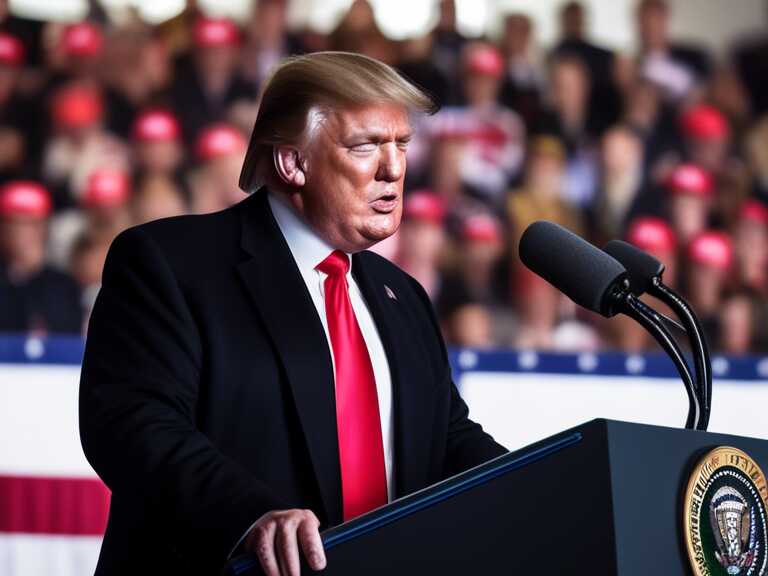
Trump's Tariff Twists: How Voters Will React to Economic Uncertainty
President Trump's economic policies, including tariffs, are facing scrutiny as voters question their impact on prices. Medicaid cuts are also a major point of contention in Republican budget plans.

The recent fluctuations in President Donald Trump's trade and economic strategies, primarily surrounding tariffs, have not only captured media attention but also ignited discussions about potential voter reactions. Trump's awareness of the impact of the economy and price concerns on his electoral victory is evident in his past statements, where he directly linked high prices to his success in the political arena. However, current public sentiment signals growing apprehension about his prioritization of these issues.
Public Concern Over Inflation
A CBS News/YouGov poll has revealed that a staggering 80% of Americans deem inflation as a critical concern for the Trump administration, yet only 29% believe that the issue is being given substantial attention by the President. This disparity between public priority and perceived governmental action raises questions about the administration's ability to resonate with voters on economic matters.
Potential Economic Disturbances
Administration officials have acknowledged that the implementation of tariffs may lead to a temporary period of economic disruption. Treasury Secretary Scott Bessent and Commerce Secretary Howard Lutnick have both hinted at the likelihood of higher prices on certain products as a consequence of these measures. Trump's comments further underscore the potential disturbances and adjustments that may accompany the implementation of tariffs.
Uncertainties on Tariffs and Voter Patience
The uncertainty surrounding the duration of potential price increases and the possibility of future tariff shifts adds to the complexities of Trump's economic agenda. The forthcoming Sunday discussion on "Meet the Press" will delve into the next steps for Trump's economic strategies, offering insights from key figures such as Commerce Secretary Howard Lutnick and Sen. Elissa Slotkin, D-Mich.
Job Growth and Trade War Tensions
Amidst the turbulent economic landscape, the U.S. recorded the creation of 151,000 jobs in February, falling short of expectations. This lackluster job growth occurred alongside a reduction of 10,000 jobs in the federal government sector. Moreover, the ongoing trade war tensions were reflected in the financial markets, with the S&P 500 experiencing one of its worst weeks in several months as a result of the administration's trade policy actions.
Tariff Threats and International Relations Complexity
The Trump administration's trade policies have extended beyond domestic patters, with President Trump hinting at the possibility of implementing tariffs on Canadian dairy and lumber. This move signifies the escalating trade tensions between the U.S. and Canada, adding a layer of complexity to international relations.
Share news















